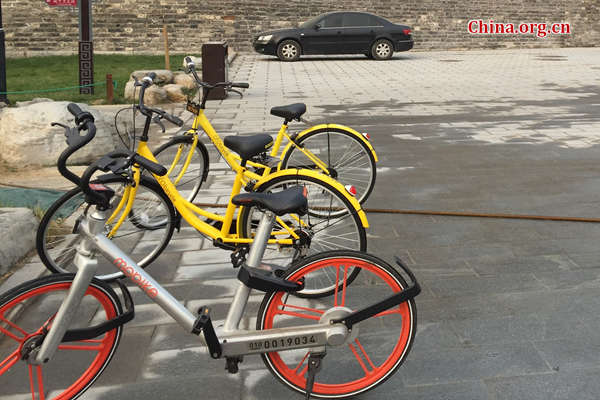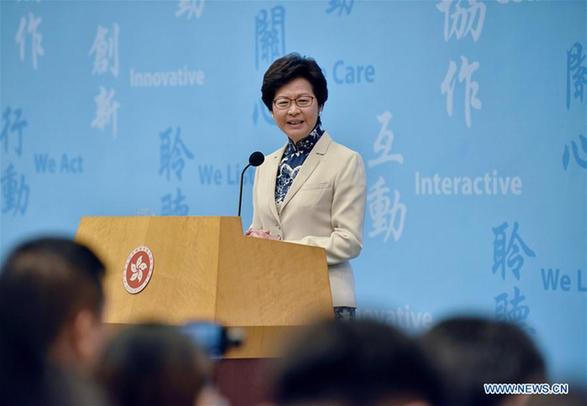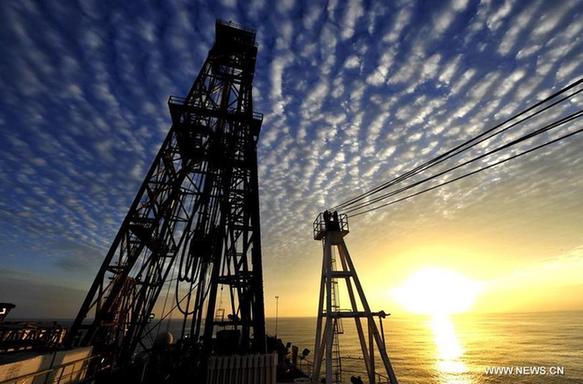Presidente, carissimo Antonio,
Presidente Pittella,
Sehr verehrte Frau Vorsitzende Zimmer,
Meine sehr verehrten Damen und Herren Abgeordnete, Ministers, Excellencies, Ladies and Gentlemen,
Unfortunately I cannot express myself in my native language, Luxembourgish, because only a few of you are fluent in Luxembourgish, so I will try to express myself in the three other languages we are used to; German first.
Meine sehr verehrten Damen und Herren,
zum ersten Mal wurden in der vergangenen Woche Master-Titel in europäischem Grenzmanagement verliehen. Wenn mehr als 20 Absolventen aus 16 Ländern ein Programm an sechs Partneruniversitäten und bei verschiedensten Institutionen des EU-Grenzschutzes durchlaufen haben, dann ist das eigentlich der Beweis, dass wir tatsächlich ein neues Kapitel in der Migrationspolitik aufgeschlagen haben. Das gemeinsam mit Frontex aufgelegte Programm zeigt, dass wir langfristig daran arbeiten, unsere gemeinsamen Grenzen auch gemeinsam zu schützen.
Zusammen mit vielen von Ihnen ist es uns in weniger als einem Jahr gelungen, etwas hinzukriegen, was vorher 20 Jahre lang nicht möglich war. Nämlich eine Europäische Grenz- und Küstenwache aufzubauen. Diese trägt dazu bei, die am stärksten betroffenen Grenz-Abschnitte abzusichern. Zurzeit sind bereits 1.600 europäische Grenzschützer im Einsatz, die die nationalen Grenzbeamten unterstützen – 977 in Griechenland, 402 in Italien, 168 in Bulgarien und 65 in Spanien. Zusätzlich steht ein Pool von 1.500 Grenzschutz-Beamten sofort einsatzbereit. Man soll also aufhören, dauernd zu verlangen, dass wir in Sachen europäischer gemeinsamer Grenzschutz ernst machen – wir tun dies bereits.
In der Migrationspolitik werden wir von zwei europäischen Grundprinzipien geleitet: Verantwortung und Solidarität. Deshalb habe ich gemeinsam mit anderen während des Europawahlkampfes deutlich gemacht, dass wir kein Land im Stich lassen dürfen wenn es um Menschen in Not geht. Es kann nicht sein, dass allein die Lage auf der Landkarte darüber bestimmt, wie viel Verantwortung ein Land in der Flüchtlingsfrage trägt.
Und ich möchte hier ausdrücklich und belobigend die außergewöhnlichen Anstrengungen Italiens hervorheben, wie auch diejenigen Griechenlands. Italien gibt minütlich ein Beispiel dafür ab, was europäische Solidarität bedeutet – und Griechenland tut dasselbe.
Und weil wir Italien und Griechenland nicht alleine lassen dürfen ist die Kommission vor Ort und unterstützt diese Mitgliedstaaten, wie auch andere. In Griechenland und Italien haben wir zentrale Aufnahmestellen eingerichtet, in die wir EU-Beamte, Mitarbeiter von EU-Agenturen und Experten aus den Mitgliedstaaten entsandt haben. Wir haben auch – obwohl die Anstrengung nicht reicht – für moderne Ausrüstung gesorgt. Und wir haben dafür gesorgt, dass der Anteil von Asylsuchenden, deren Fingerabdrücke in Griechenland erfasst werden, rapide gestiegen ist. Während im September 2015 nur 8 Prozent der ankommenden Menschen registriert wurden, waren es ein Jahr später 100 Prozent. Wir haben also die Strukturen geschaffen, die wir brauchten, um Kontrolle und geordnete Verhältnisse zu gewährleisten.
Gleichzeitig haben wir auch dort angesetzt, wo die Geflüchteten ihren gefährlichen, ja lebensgefährlichen Weg zu uns antreten. Wir haben unsere Ressourcen im Mittelmeer aufgestockt und konnten so mehr als 500.000 Menschen in Not retten. Darüber hinaus legen wir auch den Menschenhändlern das Handwerk. Zu diesem Zweck dient im Übrigen auch das Abkommen mit der Türkei, was dazu geführt hat, dass die Zahl der ankommenden Flüchtlinge aus der Türkei in Griechenland um 98 Prozent zurückgegangen ist.
[Solidarity and Responsibility]
Ladies and Gentlemen,
All of this should serve as a reminder of how far we have come in such a short space of time. In the last year alone, over 6,000 Syrians have been given safe and legal pathways to Europe from Turkey. And almost 21,000 people have now been relocated from Greece and Italy. Not enough, but this is a historical first. And with a real push, it is feasible to relocate all other eligible people by September 2017.
But solidarity is not a one-way street — every country must take its fair share of responsibility. And if there are some who refuse, the Commission must also honour its own responsibilities.
We showed last week with the infringement procedures we have launched that we are taking our responsibilities seriously.
Let me be clear: I take no satisfaction at all in starting infringement procedures — I want, I like, I would like, I would love to convince, because I believe solidarity should first come from the heart — but if it is not then we have to uphold binding decisions.
And at the same time we must keep looking for solutions and get on with fixing the system for the future.
The current system is plainly broken: procedures are too complex, too lengthy and applicants are not treated the same way in each Member State.
Some national asylum systems are more generous than others. This encourages ‘asylum shopping’. We all saw too vividly how the current system cannot cope under pressure.
That is why we need a robust system that helps the Member States most affected by geography, gives refuge to those in need of protection, and helps return those who have no right to stay in the European Union.
This was the basis for the Commission’s proposal to reform the whole Common European Asylum System. Our proposals are anchored in international law and look to reform every aspect of our asylum law — from reception conditions to asylum procedures to qualifications and to the Dublin rules on identifying responsibility.
Our proposal harmonises protection standards in the EU, puts an end to secondary movements and asylum shopping, and ensures stricter rules to combat abuse.
This is now urgently needed and we must now press ahead. I am glad that your Parliament, Mr President, is advancing steadily on this work. And I thank the Maltese and the future Estonian Presidencies, as well the previous Slovak Presidency for all their efforts to break the deadlock between Member States.
Now is the time to find a balanced compromise and make our asylum system fully fit for purpose.
[S’attaquer aux causes de la migration]
Mesdames et Messieurs,
Quand nous parlons de migration, nous ne devons jamais oublier que derrière les statistiques et les chiffres, il y a des femmes, des hommes, des enfants, qui auraient préféré rester chez eux au lieu de se jeter sur les routes d’un exil incertain pour échapper à la misère, à la violence, à la guerre. Il est de notre responsabilité à nous Européens de faire en sorte que ces personnes puissent bâtir un avenir meilleur dans leur pays plutôt que de risquer leur vie en Méditerranée et d’enrichir des trafiquants sans scrupule.
C’est la raison pour laquelle nous avons intensifié notre coopération avec les pays d’origine et de transit, notamment, comme le Président l’a justement souligné, avec nos cousins africains.
Nous avons lancé l’année dernière un nouveau cadre de partenariat avec l’Afrique. La lutte contre les trafiquants a été renforcée, avec le soutien du Corps européen de garde-frontières et de garde-côtes, d’Europol et de la mission Sofia en Méditerranée. Je salue au passage tous ceux qui font partie de ces différents instruments qui ont été mis en place: Europol, ceux qui participent à la mission Sofia, tous ceux qui sont engagés dans le Corps européen de garde-frontières et de garde-côtes, font un remarquable et admirable travail. Sans eux, nous serions perdus. Sans eux, beaucoup de malheureux, eux aussi, seraient perdus.
Des mesures ont été prises pour faciliter le retour de migrants irréguliers vers leur pays d’origine. Le programme d’aide au retour volontaire lancé par l’Organisation internationale pour les migrations avec le soutien financier de la Commission a déjà permis à plus de 4000 migrants bloqués en Libye de retourner dans leur pays d’origine. Et des accords de réadmission sont en cours de négociation avec le Maroc, le Nigéria, la Tunisie et la Jordanie.
200 millions d’euros seront mobilisés en 2017 pour des actions dans le domaine de la migration en Afrique du Nord, notamment en Libye, mais aussi en Egypte et en Tunisie.
Par ailleurs, notre Fonds fiduciaire d’urgence pour l’Afrique a mobilisé, en un an, quelque 1,9 milliard d’euros. 118 projets ont déjà été approuvés, avec par exemple le Niger, le Sénégal ou le Soudan du Sud.
Enfin, j’ai proposé un Plan d’investissement externe pour l’Afrique et les pays voisins. Je compte sur la célérité des co-législateurs pour qu’il puisse être opérationnel d’ici à septembre. Nous avons écrit et récité trop de poèmes sur la coopération entre l’Afrique et l’Europe; il faut maintenant investir sur place pour que l’Afrique puisse répondre présent quand il s’agit de réaliser ses ambitions.
[Conclusion]
En deux ans, nous avons beaucoup fait pour mieux gérer les différents aspects des questions migratoires. Ce n’est pas le moment de se laisser aller à l’autosatisfaction ou, pire encore, de laisser se creuser des fissures de solidarité. Nous devons compléter et consolider les fondations mises en place. Est-ce que je suis satisfait de ce que nous avons fait jusqu’à ce jour ? Oui et non, parce qu’il reste tellement de choses à faire. Nous les ferons ensemble.
Merci.


